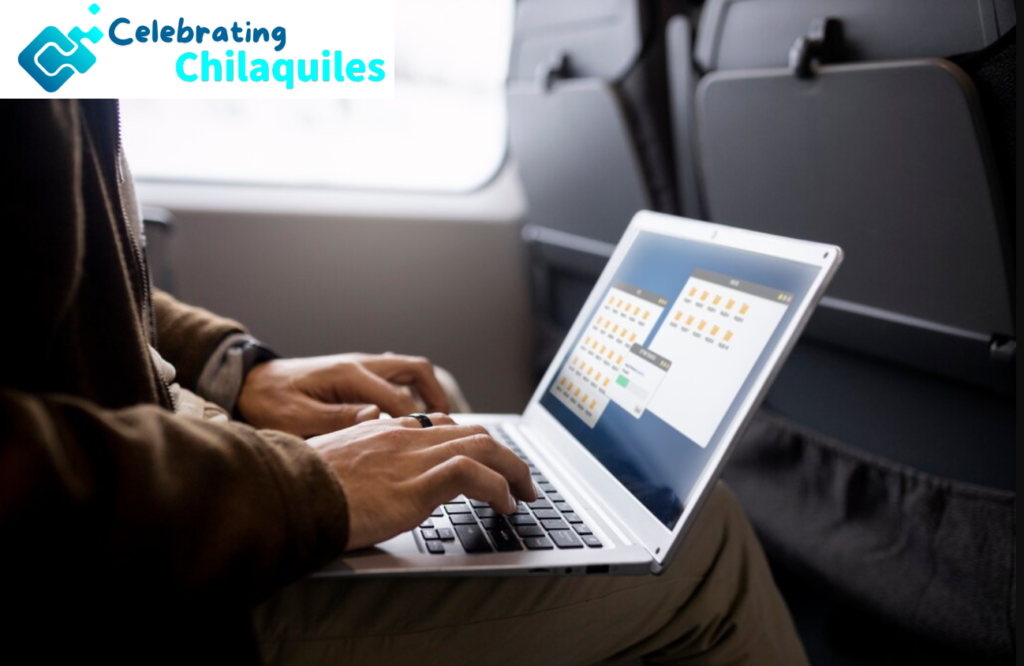Can You Bring A Laptop Computer on A Plane? – Yes, you can bring a laptop computer on a plane, both in your carry-on and checked luggage, but it’s highly recommended to keep it in your carry-on for safety and convenience. Most airlines and security agencies, including the TSA (Transportation Security Administration), allow passengers to bring laptops on planes. However, there are some guidelines and best practices you should follow to ensure a smooth travel experience.
Bringing a laptop on a plane is a common necessity for many travelers, whether for work, entertainment, or staying connected. In this guide, we’ll explore everything you need to know about flying with a laptop, including TSA rules, airline policies, tips for handling your device during travel, and how to avoid any potential issues at security checkpoints. Let’s dive in!
Can You Bring a Laptop in Your Carry-On?
You can bring your laptop in your carry-on bag, and this is the recommended way to travel with your laptop. The TSA and other global security agencies prefer that passengers keep electronic devices like laptops, tablets, and smartphones in their carry-on bags due to security reasons. Here’s why:
- Security Screening: Laptops must be removed from your carry-on and placed in a separate bin for X-ray screening at security checkpoints. This is to ensure that the device is properly screened without interference from other objects.
- Safety Concerns: Carrying your laptop in your carry-on reduces the risk of damage. Checked luggage can be tossed around during loading and unloading, which can potentially damage sensitive electronics.
- Ease of Access: Having your laptop in your carry-on bag allows you to use it during the flight, whether for work, entertainment, or staying connected with others.
Can You Put a Laptop in Checked Luggage?
While you can technically place your laptop in checked luggage, it is generally not recommended. Here are the reasons why:
- Risk of Damage: Checked bags are handled roughly, which can lead to potential damage to delicate electronics. Laptops are sensitive to shocks and impacts, making them more vulnerable in checked baggage.
- Security Risks: There is a higher risk of theft or loss when you place valuable items like laptops in checked luggage. Although uncommon, lost baggage incidents do occur, and recovering a lost or stolen laptop can be a hassle.
- Airline Policies: Some airlines discourage placing electronics in checked luggage due to safety concerns related to lithium batteries. There have been instances of battery malfunctions that could pose a fire risk.

TSA and International Security Guidelines for Laptops
When traveling with a laptop, you must comply with TSA guidelines and any additional security protocols set by international airports. Here are key points to remember:
- Separate Screening: As per TSA guidelines, laptops should be removed from bags and placed in a separate bin during security screening. Ensure your laptop is easily accessible in your carry-on.
- Battery Regulations: Lithium batteries, commonly used in laptops, are allowed in carry-on bags but must adhere to certain watt-hour limits. For most consumer laptops, this won’t be an issue, but it’s best to check if your device complies with regulations.
- International Flights: If traveling internationally, be aware that some countries might have additional restrictions or different screening procedures. Always check the regulations of your destination country before you travel.
Tips for Traveling with a Laptop
Traveling with a laptop doesn’t have to be stressful if you prepare properly. Here are some tips to make your journey smoother:
- Use a Protective Case: Invest in a good laptop sleeve or case to protect your device from bumps and knocks while in transit.
- Keep Your Laptop Charged: Make sure your laptop is fully charged before you head to the airport. This will allow you to use it during the flight and have it powered on if requested by security.
- Back Up Your Data: It’s always a good practice to back up your laptop data before traveling. This ensures that in case of theft, loss, or damage, your important files are safe.
- Stay Aware of Airport Wi-Fi Security: Be cautious when using public Wi-Fi networks at airports. Avoid accessing sensitive information and consider using a VPN for added security.
Are There Any Restrictions on Using Laptops During the Flight?
Most airlines allow the use of laptops during the flight, but there are a few things to keep in mind:
- Takeoff and Landing: Laptops and other large electronic devices need to be stowed during takeoff and landing for safety reasons. You can use them once the plane reaches cruising altitude.
- In-Flight Wi-Fi: Many airlines offer in-flight Wi-Fi, allowing you to stay connected. However, remember that the connection might be slower than what you’re used to on the ground.
- Power Availability: Check if your flight provides power outlets or USB ports for charging your devices. Long flights can drain your battery, so it’s good to know if you’ll have charging options.

FAQs: Can You Bring A Laptop Computer on A Plane?
Can you take a laptop computer on an airplane?
Yes, you can bring a laptop on an airplane in both your carry-on and checked luggage, but it is recommended to keep it in your carry-on for safety and convenience.
How to carry a laptop in a flight?
Carry your laptop in a padded case or sleeve inside your carry-on bag. Remove it for separate screening at security checkpoints, and stow it securely during takeoff and landing.
Can you take a laptop in hand luggage on a plane?
Yes, you can take a laptop in your hand luggage. Just make sure to remove it for X-ray screening at security checkpoints.
Is a laptop allowed in check-in baggage?
While you can place a laptop in checked baggage, it is not recommended due to the risk of damage, theft, and potential issues with lithium batteries.
What electronics are not allowed in checked luggage?
Most airlines discourage placing electronics with lithium batteries, such as laptops, tablets, and smartphones, in checked luggage due to fire risks. Power banks and spare lithium batteries are also prohibited in checked bags.
What is not allowed in a flight?
Prohibited items on flights include sharp objects, flammable items, firearms (unless declared and packed appropriately), large quantities of liquids, and certain electronics in checked luggage. Always check with your airline for specific restrictions.

